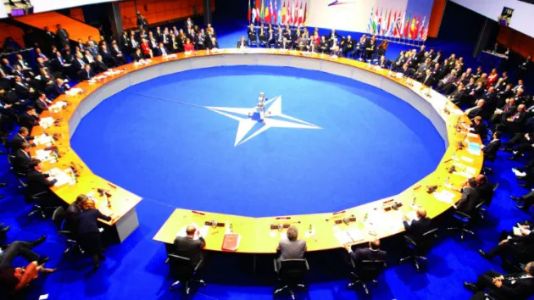
-
Published: 30 November 2022

In the first discussion dedicated to the issue of China and Taiwan, and amid encouragement from the United States to pay more attention to China's "growing threat to the island," NATO members held their first talks on Taiwan last September
Members of the "NATO" discussed the issue of Taiwan at previous council meetings with China's increasing assertion of its sovereignty over the island, but the September session was different
The discussions came three months after NATO launched a strategy that for the first time described China as a threat to the 30-member alliance, and one month after Beijing launched large-scale military exercises in response to the visit of US House Speaker Nancy Pelosi to Taipei.
James Stavridis, a retired US admiral and former Supreme Allied Commander of NATO, said: "it is noteworthy and important that, for the first time, the alliance is holding discussions on the status of Taiwan, its democratic government and its crucial role in global chip manufacturing.
One of the people familiar with the September talks said that the NATO ambassadors discussed the latest intelligence about the threat to Taiwan and the impact of any conflict there on the members".
"We did not talk about NATO's role in the event of any military action, but we discussed the variety of impacts it could have on Euro-Atlantic security and broader implications for the alliance,"the source added.
They also discussed how NATO should brief Beijing on the possible repercussions of any military action - a discussion that gained importance after the Russian military operation in Ukraine - amid questions about whether the West was "strict enough in its warnings to Moscow".
Earlier this month, Chinese President Xi Jinping assured his US counterpart Joe Biden in their first face-to-face meeting that the Taiwan issue is at the core of China's core interests.
Xi told Biden that the Taiwan issue "is the cornerstone of the political foundation of China and the United States, and it is also the first red line that should not be crossed in Sino-American relations".
